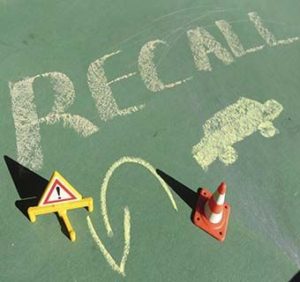A product recall is never good news for a firm. And though it might seem like a great occasion for schadenfreude, a recall is not necessarily good news for competitors.
 Product recalls damage a firm’s reputation, trust, and brand equity with consumers and lead to losses in sales and market value. However, prior research on the effect of recalls on rival brands is very scarce. No prior research has focused on the effect of recalls on online chatter about rival brands and whether the negative chatter about the rival leads to damaging effects on their sales and stock market performance. Main hypothesis: Does negative chatter about one brand increases negative chatter about an innocent rival and thereby decrease its sales and stock market performance.
Product recalls damage a firm’s reputation, trust, and brand equity with consumers and lead to losses in sales and market value. However, prior research on the effect of recalls on rival brands is very scarce. No prior research has focused on the effect of recalls on online chatter about rival brands and whether the negative chatter about the rival leads to damaging effects on their sales and stock market performance. Main hypothesis: Does negative chatter about one brand increases negative chatter about an innocent rival and thereby decrease its sales and stock market performance.
Perverse halo, a phenomenon whereby negative chatter about one car model increases negative chatter about another car model, is extensive. Only 26%–33% of effect of negative chatter is truly brand-specific, and within a brand 56%– 91% of effect of the negative chatter is shared among its car models. The direction of the perverse halo is asymmetric—that is, it is stronger from the dominant brand to a less dominant brand. Perverse halo is strongest between brands of same country. It also affects a rival’s sales and stock market performance. Finally, online chatter amplifies the negative effect of recalls on sales nearly 4.5 times, and apology advertising about recalls hurts a recalled brand and its rivals.
Abhishek Borah and Gerard J. Tellis (2016), “Halo (Spillover) Effects in Social Media: Do Product Recalls of One Brand Hurt or Help Rival Brands?” Journal of Marketing Research, 53 (2), pp. 143-160.
doi: http://dx.doi.org/10.1509/jmr.13.0009


